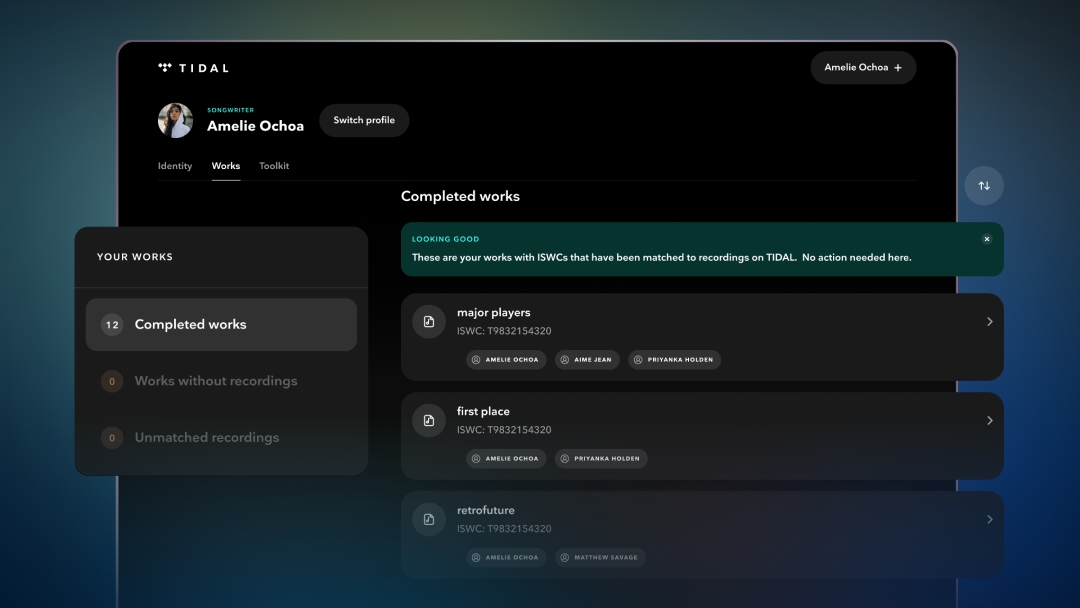Music streaming service Tidal has launched new features that let artists track royalties and manage the music they have songwriting credits for on the platform.
Music royalties are Byzantine in their complexity. In the U.S., all collaborators on a given track, including the composers and performers, must be registered with a Performing Rights Organization (PRO) and get an Interested Party Information (IPI) number that identifies them as the rights holders of a track. The PROs of different regions track where the tracks are used and make sure royalties are paid to artists.
The biggest challenge for artists here is tracking royalties and where their works have been used. There are different royalty rights for mechanical reproduction (CDs, MP3s, vinyls, film soundtracks and publishing on streaming services) and performance (playing in public, airplay or streaming).
Artists who already have a PRO and IPI number can claim their profile on Tidal after verifying their documentation, and start tracking royalties. Tidal has added a dashboard that shows the artist’s IPI, PRO and publisher information, as well as which of their recordings have all the artist and royalty information registered, tracks without a matching listing on Tidal and any tracks that Tidal thinks could be the artist’s work, but are not credited properly.

For artists who are just getting started, Tidal provides an option to sign up with AllTrack, a digital PRO. The organization tracks data on streaming services, TV and radio stations, entertainment venues and local businesses. There’s also an option to join Mechanical Licensing Collective (MLC), a nonprofit that collects and pays royalties to artists for streams and downloads in the U.S.
In addition, Tidal’s new toolkit lets artists check track or album metadata to see if royalty splits are accurately listed — you can propose changes, if needed.

Artists can use these tools for free. Tidal is using its own catalog and third-party data to track royalty information.
Agustina Sacerdote, Tidal’s global head of product, told TechCrunch that the company decided to work on this dashboard because the current set of tools available to artists are dated or too complex.
“If you want to be a truly artist-first company, you have to recognize that often, the main artist is the public-facing figure we associate with the track. But there is a whole ecosystem of collaborators and contributors that make the project happen. We believe that songwriters are a critical part of the ecosystem and tools built for them are antiqued and complex, so we decided to tackle the problem,” she said.
Unsurprisingly, there are a few venture-backed startups trying to solve this problem, too: Mogul, backed by Wonder Ventures and United Talent Agency, offers tools that help artists track unclaimed royalties; and Mozaic, which raised a $20 million Series A round from Volition Capital, is building a solution that makes it easy to split royalties between collaborators.
Tidal, owned by Block, seems to be more focused on developing products for artists than consumers. Spotify, for instance, is casting a wide net, with social features for podcasts and music and an online learning service aimed at consumers, in addition to letting artists sell merch and tickets.
Meanwhile, Tidal last year released Collabs, which lets artists find other folks to work on a track or a live show. The company told TechCrunch that it is testing new features to help artists connect with fans through Square, and that Block is considering using Cash App to help artists get paid faster.
#Tidal #launches #royalty #tracking #features #artists
